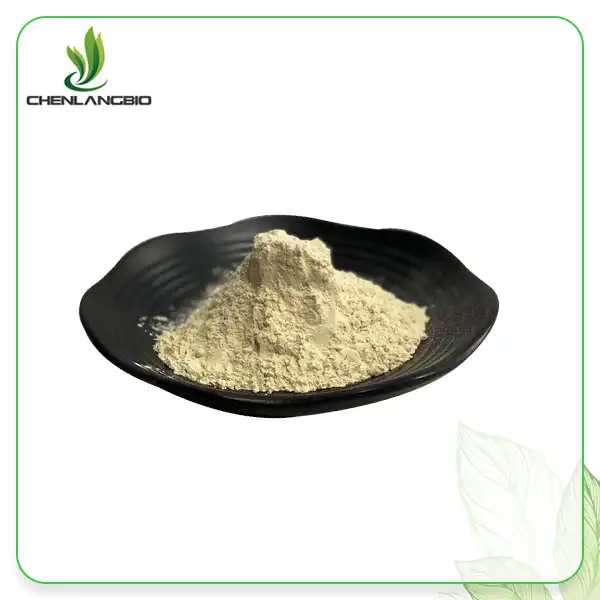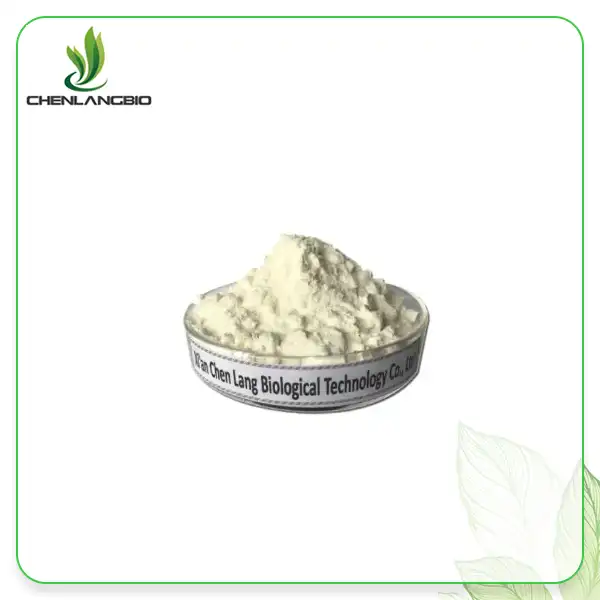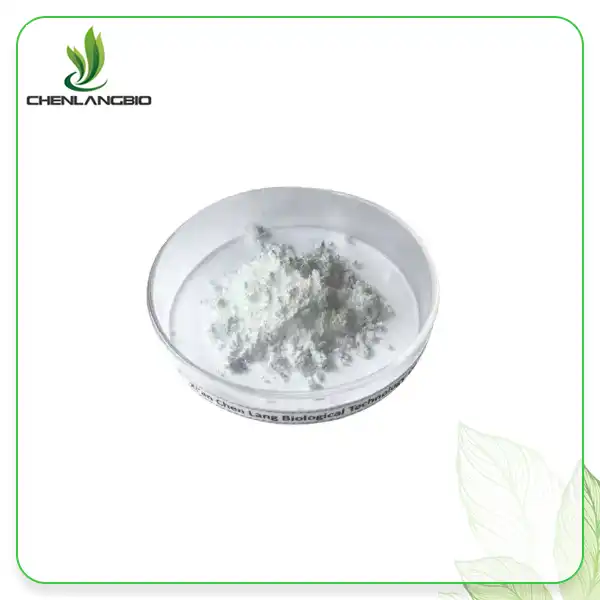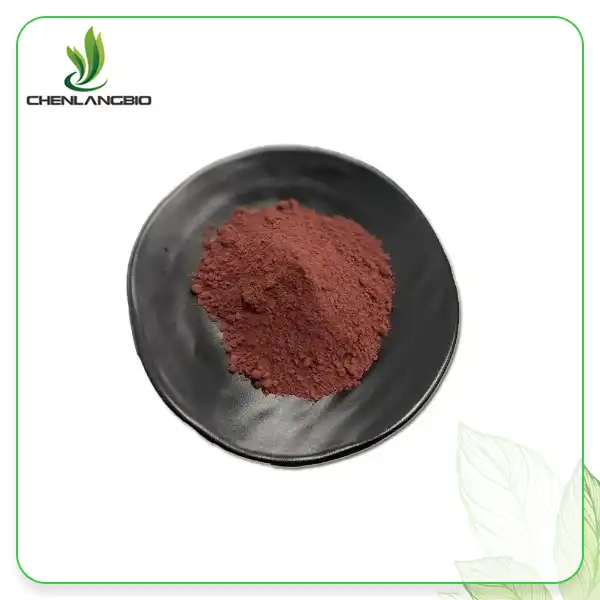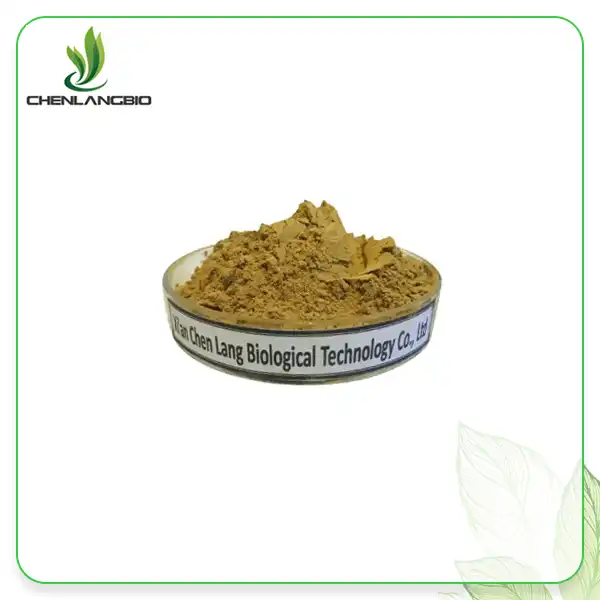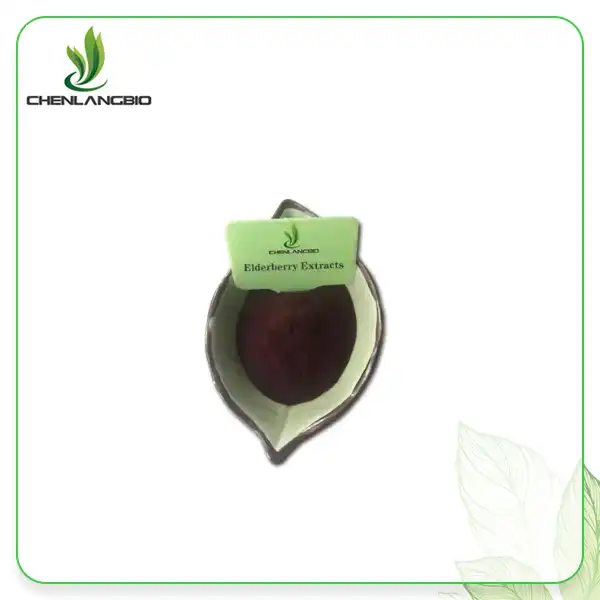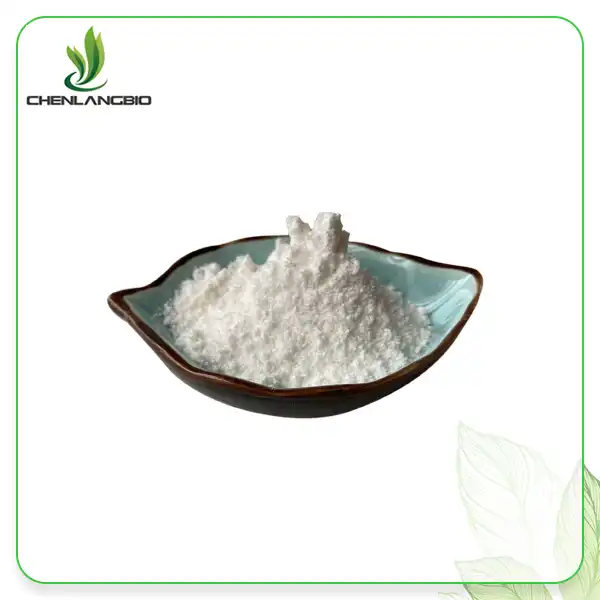Pure Fisetin for Brain Health and Memory Boost
2024-12-09 15:28:08
As we age, maintaining cognitive function and preserving memory become increasingly important. Pure fisetin, a naturally occurring flavonoid found in various fruits and vegetables, has garnered attention for its potential neuroprotective properties and ability to enhance brain health. This article explores the benefits of pure fisetin for cognitive function and memory, backed by scientific research and expert recommendations.
How Fisetin Protects Brain Cells?
Pure fisetin exhibits remarkable neuroprotective qualities that contribute to brain health and cognitive function. This powerful antioxidant works through multiple mechanisms to safeguard brain cells from damage and degeneration.
Fisetin's ability to cross the blood-brain barrier allows it to directly interact with neural tissues, providing targeted protection. Once inside the brain, fisetin activates various cellular pathways that promote neuronal survival and plasticity.
One of the primary ways fisetin protects brain cells is by reducing oxidative stress. It scavenges harmful free radicals and bolsters the body's natural antioxidant defenses. This action helps prevent oxidative damage to cellular components, including DNA, proteins, and lipids, which is crucial for maintaining healthy brain function.
Additionally, fisetin demonstrates potent anti-inflammatory properties in the brain. Chronic inflammation is a key contributor to neurodegenerative diseases and cognitive decline. By modulating inflammatory responses, fisetin helps create a more neuroprotective environment, supporting overall brain health.
Another significant aspect of fisetin's neuroprotective effects is its ability to enhance mitochondrial function. Mitochondria, the powerhouses of cells, play a vital role in neuronal health and energy production. Fisetin helps maintain mitochondrial integrity and efficiency, ensuring that brain cells have the energy they need to function optimally.
Furthermore, fisetin has been shown to promote neuroplasticity, the brain's ability to form new neural connections and adapt to changes. This property is essential for learning, memory formation, and cognitive flexibility. By supporting neuroplasticity, fisetin may help maintain cognitive function and potentially even improve it over time.
Scientific Studies on Fisetin and Cognitive Health
The potential cognitive benefits of pure fisetin have been the subject of numerous scientific studies, with promising results emerging from both animal and human trials. These studies have explored fisetin's effects on various aspects of brain health, including memory, learning, and overall cognitive function.
A groundbreaking study published in the journal "Aging Cell" investigated fisetin's impact on cognitive decline in aged mice. The researchers found that fisetin supplementation significantly improved memory and learning abilities in older mice, bringing their performance closer to that of younger animals. This study suggested that fisetin could potentially counteract age-related cognitive decline.
Another noteworthy study, conducted at the Salk Institute for Biological Studies, examined fisetin's effects on Alzheimer's disease pathology. The researchers discovered that fisetin reduced the accumulation of harmful proteins associated with Alzheimer's and improved memory in mouse models of the disease. These findings highlight fisetin's potential as a therapeutic agent for neurodegenerative disorders.
Human studies on fisetin, while more limited, have also shown promising results. A clinical trial published in the "Journal of Alzheimer's Disease" investigated the effects of a fisetin-containing supplement on cognitive function in older adults. The study reported improvements in various cognitive domains, including memory and processing speed, after 12 weeks of supplementation.
Research has also explored fisetin's impact on brain-derived neurotrophic factor (BDNF), a protein crucial for neuronal growth and survival. A study in the "Neuroscience Letters" journal found that fisetin increased BDNF levels in the hippocampus, a brain region vital for memory formation. This increase in BDNF could contribute to enhanced cognitive function and neuroprotection.
Moreover, fisetin's ability to modulate cellular senescence, a process linked to aging and cognitive decline, has been investigated. A study in "EBioMedicine" demonstrated that fisetin could selectively eliminate senescent cells in various tissues, including the brain. This senolytic effect of fisetin could potentially slow down age-related cognitive decline and promote healthier brain aging.
Best Practices for Fisetin Supplementation
To maximize the potential benefits of pure fisetin for brain health and memory, it's essential to follow best practices for supplementation. Here are some key considerations and recommendations:
Dosage: While optimal dosages can vary depending on individual factors, most studies have used doses ranging from 100 to 500 mg per day. It's advisable to start with a lower dose and gradually increase it under the guidance of a healthcare professional.
Timing: Some research suggests that taking fisetin with a meal containing fat may enhance its absorption. Consider taking your fisetin supplement with a meal or a source of healthy fats, such as avocado or nuts.
Quality: Choose a high-quality, pure fisetin supplement from a reputable manufacturer. Look for products that have been third-party tested for purity and potency.
Consistency: The benefits of fisetin are likely cumulative, so consistent daily supplementation is key. Incorporate fisetin into your routine for optimal results.
Synergistic Combinations: Some studies suggest that combining fisetin with other neuroprotective compounds, such as quercetin or resveratrol, may enhance its effects. Consult with a healthcare provider about potential synergistic combinations.
Lifestyle Factors: Remember that supplements work best as part of a holistic approach to brain health. Combine fisetin supplementation with a healthy diet, regular exercise, quality sleep, and cognitive stimulation for comprehensive brain support.
Individual Variations: Keep in mind that responses to fisetin can vary among individuals. Pay attention to how your body responds and adjust your supplementation strategy accordingly.
Long-term Use: While fisetin appears to be safe for long-term use, it's always wise to periodically reassess your supplement regimen with a healthcare professional.
Potential Interactions: If you're taking medications or have pre-existing health conditions, consult with your healthcare provider before starting fisetin supplementation to avoid potential interactions.
Storage: Store your fisetin supplement in a cool, dry place away from direct sunlight to maintain its potency and effectiveness.
Conclusion
By adhering to these best practices, you can optimize your fisetin supplementation strategy and potentially enhance its cognitive benefits. Remember, while fisetin shows promise for brain health and memory support, it's not a magic bullet. It should be part of a comprehensive approach to cognitive wellness that includes a healthy lifestyle and regular medical check-ups. Pure fisetin presents an exciting avenue for supporting brain health and cognitive function. Its neuroprotective properties, coupled with promising scientific evidence, make it a compelling option for those looking to maintain or enhance their cognitive abilities. By understanding how fisetin works, staying informed about the latest research, and following best practices for supplementation, you can harness the potential of this remarkable flavonoid for your brain health journey. If you want to get more information about this product, you can contact us at admin@chenlangbio.com.
References
1. Maher, P. (2015). How fisetin reduces the impact of age and disease on CNS function. Frontiers in Bioscience, 20, 1084-1105.
2. Ahmad, A., et al. (2017). Fisetin Inhibits Growth and Induces Apoptosis in Human Glioma Cells Through Regulation of NF-κB Signaling Pathway. Molecular Neurobiology, 54(7), 5343-5358.
3. Currais, A., et al. (2018). Fisetin Reduces the Impact of Aging on Behavior and Physiology in the Rapidly Aging SAMP8 Mouse. The Journals of Gerontology: Series A, 73(3), 299-307.
4. Yousefzadeh, M. J., et al. (2018). Fisetin is a senotherapeutic that extends health and lifespan. EBioMedicine, 36, 18-28.
5. Kim, S., et al. (2016). Fisetin stimulates autophagic degradation of phosphorylated tau via the activation of TFEB and Nrf2 transcription factors. Scientific Reports, 6, 24933.
6. Kashyap, P., et al. (2018). Fisetin and Quercetin: Promising Flavonoids with Chemopreventive Potential. Biomolecules, 8(3), 54.
Send Inquiry
Related Industry Knowledge
- Can Cetyl Tranexamate HCL Be Combined with Other Skincare Ingredients?
- How Long Does It Take for Centella Asiatica to Work
- How Do You Use Camellia Oleifera Seed Extract Powder
- Is Camellia Oleifera Seed Extract Sustainable
- What Are the Do's and Don'ts of Bakuchiol
- Are Lutein and Zeaxanthin the Same Thing
- Fisetin Powder Anti-Aging and Extending Lifespan
- China Troxerutin Powder Supplier
- What Garlic Extract Powder Good For
- How Much Turkesterone in Ajuga Turkestanica Extract Powder



